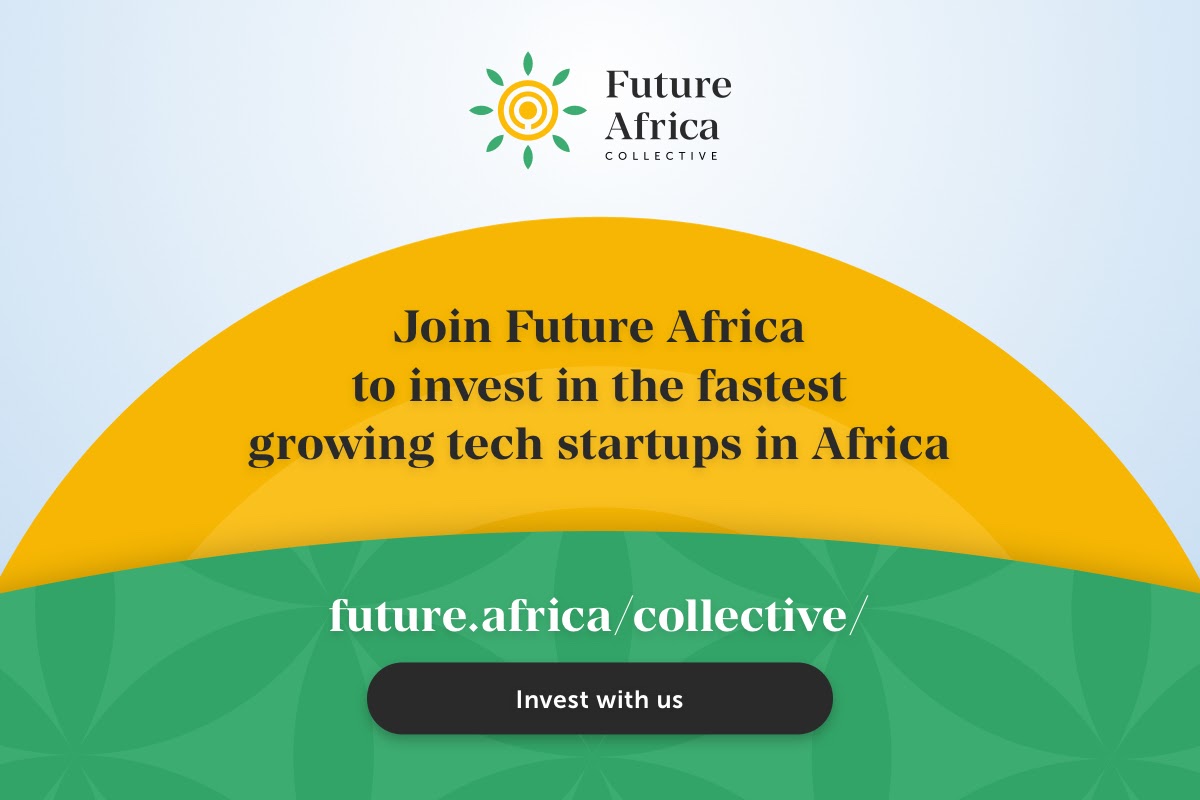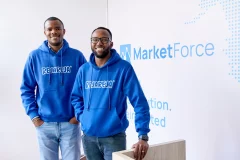
IN PARTNERSHIP WITH

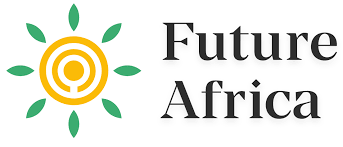
Good morning ☀️ ️
Yesterday, we told you that YouTube will be disabling dislike counts on videos and that even creators wouldn’t be able to see the counts.
That was a mistake. Creators will be able to see the dislike counts, but viewers won’t.
In today’s edition
- Quick Fire 🔥
- The metaverse won’t be here for at least 10 years
- TC Insights: Funding Tracker
- Tech Probe
QUICK FIRE 🔥 WITH UYOYO EDOSIO
Uyoyo Edosio is a Principal ICT and Innovation Expert at the African Development Bank where she develops strategies, designs programmes and manages a multi-million-dollar pan-African investment portfolio that focuses on digital infrastructure, digital entrepreneurship, and innovation.
Edosio’s over nine years’ experience is a unique blend of Big-Four management consulting and international development financing in Europe, Asia, and Africa.
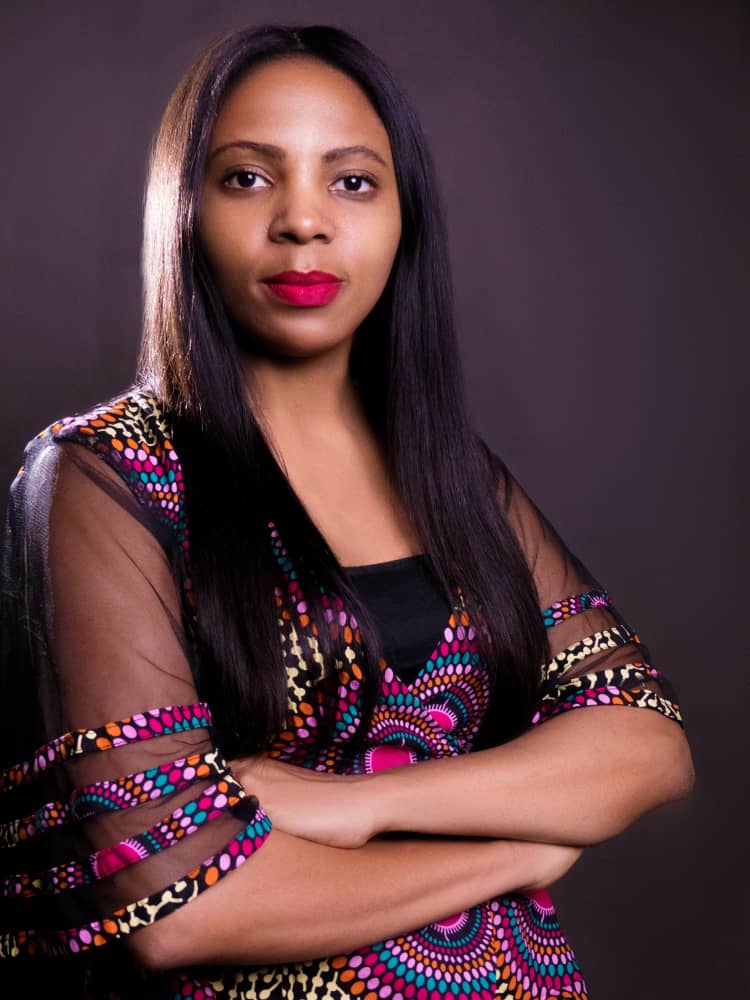
– Explain your job to a five-year-old.
I help governments and big companies develop exciting ways to bring technology to every African girl and boy no matter where they live on the continent.
– What’s something you wish you knew earlier in your career/life?
“Do it, even though you are afraid, because your thoughts are valid.” I doubted myself a lot, but then I realised everyone was figuring something out; no one has it all together. With a strong sense of faith and a higher power guiding me, a thirst for knowledge, and the ability to show up each day to face my challenges, anything is possible.
– What (singular) achievement are you most proud of?
It is pioneering programmes that will enable the integration of technology, innovation and entrepreneurship into African academia and national strategy. It’s currently being adopted by about 10 countries—Kenya, Nigeria, Rwanda, Senegal, Niger, The Gambia, Cape Verde, Guinea, Côte d’Ivoire, Sierra Leone, and Niger. When I was younger, I was one of the privileged few to access technology, but it will not end with me. Technology is now an exclusion factor; everyone should have the opportunity to gain basic literacy as a fundamental human right.
– What’s something you love doing that you’re terrible at. And what’s something you really do not like doing that you’re great at.
I love dancing. I honestly believe I am the only African born without the dancing gene because I am terrible at it.
I am good at forging partnerships and fundraising, but being an introvert, it drains a lot of my social energy.
– What’s one thing African countries should be doing to help their labour market?
Skilling, reskilling, and thinking about skilling often. The labour market is largely technology-enabled. To be competitive in this market, Africans must be equipped with the right skills. But it’s so fast-paced that it must be a lifelong learning strategy. Just imagine how many Africans were excluded from the labour market during the COVID-19 lockdown.
Secondly, the government needs to put in place the right technology infrastructure—for example, connectivity—or if this is costly, make better policies to encourage the private sector to fill this gap.
– What excites you about the African tech ecosystem?
I am proud of homegrown startups and unicorns raising world-class startups and crowding-in financing despite our socio-economic challenges. It sometimes feels like the odds are against Africa in the technology ecosystem. Child nutrition required to develop solid grey matter is lacking in many of us, our education systems are obsolete, and government policies are not enabling. But then, somewhere in this apparent chaos, a tech startup raises X millions or develops technology to help solve a social challenge. These phenomena give me so much hope, and it makes me believe, more than ever, that we can change the narrative. Even though we may have missed a few industrial revolutions, we can leapfrog and catch up.
THE JOURNEY TO THE METAVERSE IS A 10-YEAR ONE

At the end of October, social media giant, Facebook, changed its company to Meta. The announcement was made in an hour-long video that explained the company’s decision to shift gears away from being known as just a social media company and focus on building the metaverse.
Leading that work in Africa is Derya Matras, Vice President (VP), Middle East, Africa (MEA), and Turkey, Meta.
Prior to her appointment as VP in August, Matras was Managing Director for the MEA and Turkey region. Before that, she was Country Director for Facebook in Turkey for four years. Derya holds a BSc in electronics engineering from Boğaziçi University, Istanbul, Turkey, and an MBA from Columbia Business School.
Over email, Matras talked to TechCabal about Facebook’s rebrand to Meta and how it plans to make money from the metaverse and deal with the challenges that come with building it.
One interesting thing she shared? Well, the journey to the metaverse is at least a 10-year one.
Read the exclusive interview on TechCabal.
AIn Ep. 2 of Artwork, learn how to set your rates while attracting and retaining the best clients.
👉🏾 Watch now.
This is partner content.
TC INSIGHTS: FUNDING TRACKER
This week, JUMO, a South African fintech company, raised $120m, replacing TymeBank’s $109m round as the highest amount of funding secured by a South African startup this year. The round was led by Fidelity Management & Research Company, with input from Visa and Kingsway Capital.
Here are the other deals for the week:
- Chooya, a Nigeria-based startup, secured $950K in cash and programme support to digitise word-of-mouth marketing. The funding came from the Entrepreneurship World Cup (EWC).
- African digital payments platform, MFS Africa, raised $100m from AfricInvest FIVE, Goodwell Investments and LUN Partners Group with the participation of CommerzVentures, Allan Gray Ventures, Endeavor Catalyst & Endeavor Harvest, and ShoreCap III.
- Egypt-based edtech startup, OTO Courses, received $400K in cash and kind from EdVentures.
- Efreshli, an e-commerce platform specialising in furniture, got $550K in seed funding from angel investor Tarek Sakr, and property developer Marakez, and other angel investors.
- Sama (formerly known as Sama Source) secured a $70m Series B round. Caisse de dépôt et placement du Québec (CDPQ), a global investment group led the round and First Ascent Ventures, Salesforce Ventures, Vistara Growth took part, as well as all existing investors.
- AdBot, an ad-tech company based in South Africa, raised $500K from Enygma Ventures.
- Wicrypt, a Nigerian wifi-sharing platform, secured $1.5m from AU21 Capital, with participation from Polygon founder Sandeep Nailwal, Cardano’s Occam, Inclusion Capital, Outlier Ventures, Chain Capital, Pluto Digital Assets, Onega Ventures, N7 Labs, and PolkaFoundary.
- Nigeria-based digital compliance company, IdentityPass, secured $360K in pre-seed funding from CcHUB, Midlothian Angel Network, D Global Ventures Fund, and other angel Investors.
- Rabbit, a grocery-delivery startup in Egypt, closed an $11m pre-seed round. The investors that took part in this round were Global Founders Capital, Foundation Ventures, Raed Ventures, MSA Capital, and Goodwater Capital.
- Enza Capital led a $1m pre-seed round into Craydel, an edtech startup based in Kenya. Other investors in this round were BriteGaze, the Future of Learning Fund and two US-based firms Bisk Ventures and Tekton Ventures.
- Shamiri Institute, a mental health startup based in Kenya, received $1m from the Templeton World Charity Foundation.
- Egyptian fintech startup, Sympl raised an undisclosed amount from A15.
That’s all we’ve got this week.
Follow us on Twitter, Instagram, and LinkedIn for more updates on funding deals.
Join the Future Africa Collective – an exclusive community of investors who invest in startups building the future. With a $300 quarterly fee, you get access to invest a minimum of $2,500 in up to 5 high-growth African startups.
This is partner content.
TECH PROBE
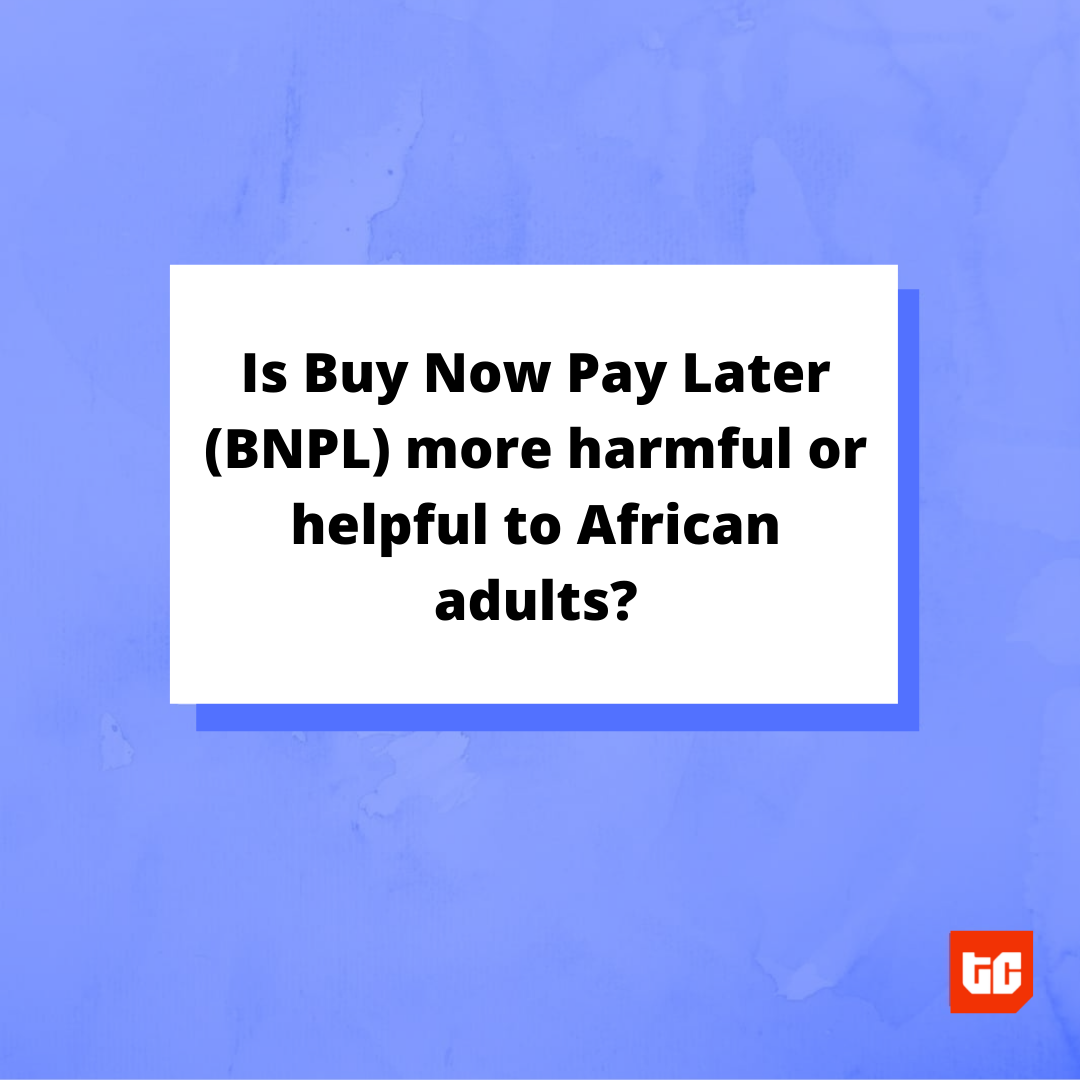
Here are some of the most interesting questions from last week’s Tech Probe. Responses have been edited for clarity.
- “Another way of making people financial slaves. Why should you buy with debt what you don’t have the cash to buy—unless it is an asset that will yield returns?” – Mopelola Adeniyi (@mopelolascribes, Instagram)
- “Harmful because it sorta promotes financial indiscipline on the part of many buyers, especially when the financial competency and/or credit history and credit exposure of the consumers aren’t assessed adequately. Helpful because it allows eligible consumers the convenience of acquisition and spreading payment within their own credit elasticity. It also encourages higher volume of economic productivity because there are fewer unsold stocks of manufacturers and merchants. Hence, it is a two-edged sword for African buyers.” – Oniyangi Kunle Sulaiman (Facebook)
- “Buy now pay later isn’t a suitable business strategy in Africa because of low levels of trust.” – Kalunga Bilima (Facebook)
- “It can be if it is based on a credit scoring system. Our financial institutions or the CBN need to first adopt a system for measuring the creditworthiness of individuals; then that [buy now pay later] would naturally be the next step.” – Obi I 👑 (@ObiTheFirst, Twitter)
- “That’s the way to poverty and perpetual debt.” – OdogwuBash💙 (@OdogwuBash, Twitter)
JOB OPPORTUNITIES
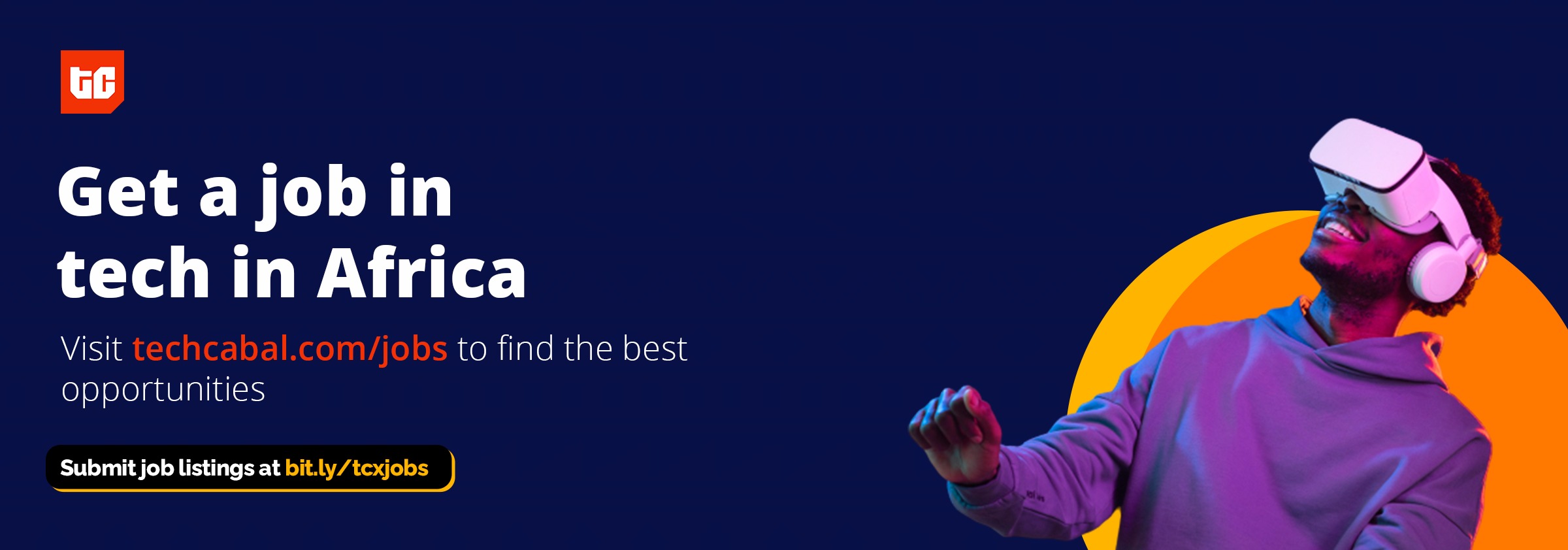
Every week, we share job opportunities in the African ecosystem.
- Big Cabal Media – Finance Intern, Sales Associate, Senior Sales Manager – Lagos, Nigeria
- M-KOPA – Senior Software Quality Assurance Analyst – Lagos, Nigeria (Remote)
- Microsoft – Program Manager, Network Security – Kenya
- United Nations – Administrative Assistant – Abuja, Nigeria
There are more opportunities here. If you’d like to share a job opening or an opportunity, please fill this form.
What else we’re reading
- Rivian raises $11.9 billion in the biggest IPO of 2021, plans to produce 1 million cars per year.
- Nigeria’s Helium Health acquires Qatar’s Meddy in a rare Africa-GCC deal.
- It’s not just Twitter after all. Elon Musk has sold $5 billion worth of Tesla shares after a related Twitter poll.








